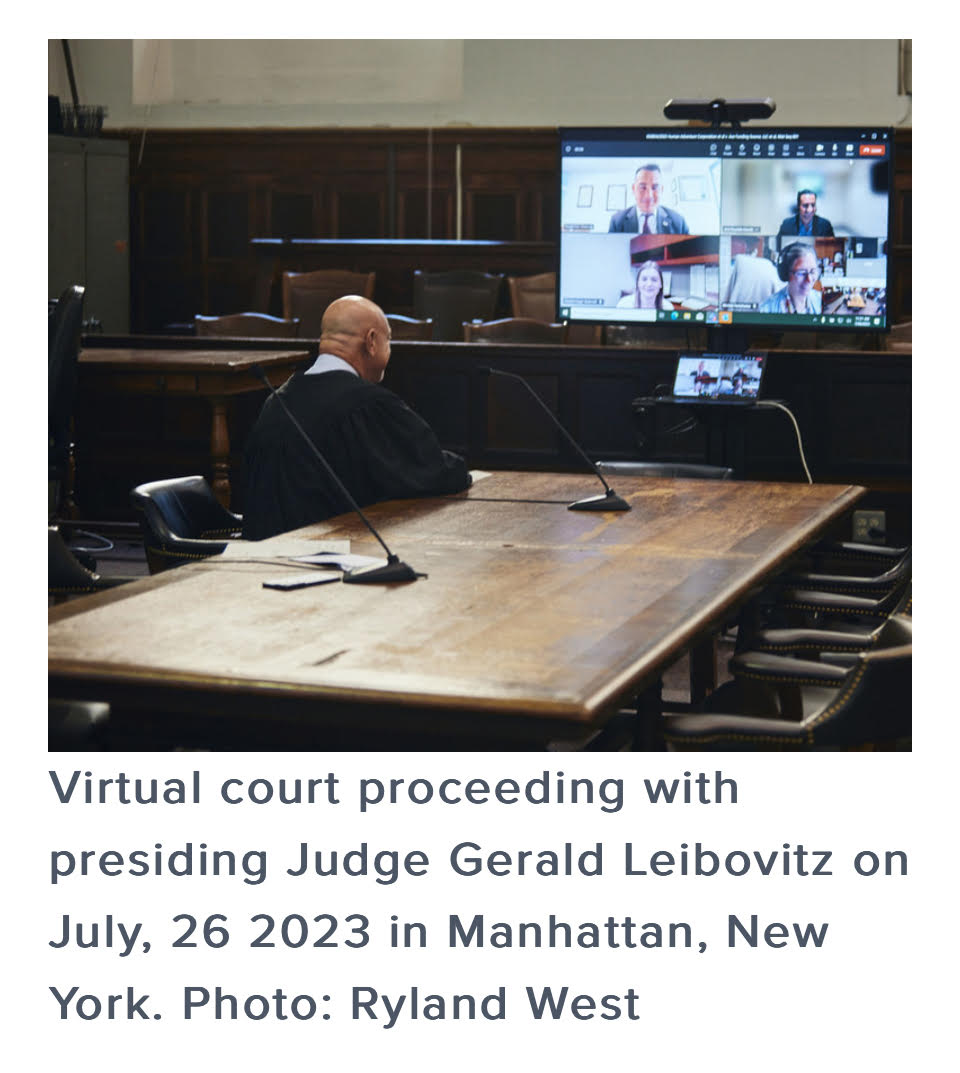Christina Blacklaws: “We’re on the cusp of meaningful A2J change” — from legaltechnology.com by Caroline Hill
As 2024 draws to a close, we took a look at the past year and the year ahead with Christina Blacklaws, the former president of the Law Society of England and Wales who, after leaving office, has developed a career supporting businesses as a non-executive director, consultant and strategic advisor. One of those advisory roles is chair of LawtechUK, an initiative to “turbocharge” the UK’s lawtech sector, delivered by CodeBase and LegalGeek and funded by the Ministry of Justice.
For Blacklaws, one of the huge areas of potential for GenAI technology is in helping to solve the access to justice crisis and she talks through some of the exciting work being done in this space and why we’re on the cusp of meaningful change.
2024 In Legal Ops: AI, Adaptation, And What’s Next — from abovethelaw.com by The Uplevel Ops Advisory Team
Reflections on the wild ride that was 2024 and bold predictions for the new year.
The Legal Operations landscape is evolving faster than ever, and UpLevel Ops is at the forefront of this transformation. With advancements like generative AI subscriptions, custom GPT services, and value-based pricing shaking up traditional approaches, legal departments are navigating uncharted territory.
…
From revolutionary uses of AI to new strategies in outside counsel management, their insights provide a roadmap for legal teams ready to embrace the next wave of innovation.
Judges Are Using Virtual Reality Headsets in the Courtroom — from vice.com by Luis Prada
A judge in Florida has just set a precedent that might forever change the US legal system—and maybe even the global legal system—forever.
…
But now the technology has advanced to the point where the judge and jury can be almost literally in his client’s shoes.
This allows the judge to not just understand the words of his testimony, but the physical conditions of it in a much more tactile way. Whether or not this will make his case more convincing is up to the jury.
The Evolution of a Virtual Court System — from law.com by Sondra Mendelson-Toscano (behind a paywall)
“It is my prediction that the future of the court system includes a hybrid employment model for the bench.”
Shortly thereafter, the New York Office of Court Administration designed and executed a plan whereby judges were able to handle their assigned matters electronically. Such seemed like a natural progression under the circumstances, given that prior to the advent of the Coronavirus, electronic testimony was successfully utilized in many different types of proceedings in various ways (e.g. vulnerable child witnesses, interstate custody and child support, elderly material witnesses, medically disabled defendants, and incarcerated individuals).
A virtual court online resource center was created for judges, staff, and the public for information related to remote operations. Despite some initial resistance by attorneys (who argued violations of the right to confrontation, that virtual is less effective and not as persuasive, computer illiteracy, and so forth), the Unified Court System pushed forward.
OCA’s course of action proved to be effective and, eventually, attorneys and litigants enjoyed the option of appearing virtually. Lawyers could handle multiple matters from their home offices in less time than it would have taken them to drive back and forth between courthouses, thus maximizing their work day.
Parties appreciated the flexibility of appearing from home and those who were essential workers valued joining proceedings on breaks while at work. Being in court remotely alleviated the stress of having to ask for, and take off, time from work, or making arrangements to address child care issues, elder care issues, and the like. Litigants with physical disabilities and other hardships, such as lack of transportation, received an automatic accommodation without having to request one.
Microsoft partners with ABA on new pilot project to help asylum-seekers — from abajournal.com by Amanda Robert
“In an ideal world, we would get everyone an in-person attorney to represent them for the full length of their case,” says Baez, the Commission on Immigration’s director of pro bono. “But in the reality we live in, where that’s really not possible, we are trying to be thoughtful and innovative on how we engage the most volunteers to help the most people who would otherwise not be able to access any legal assistance.”
In June, the Commission on Immigration partnered with Microsoft to launch a new virtual clinic to help pro se asylum-seekers complete their asylum applications. During this clinic, which included four sessions, nearly 30 volunteers from Microsoft worked with asylum-seekers to gather necessary information and prepare their applications for submission.










